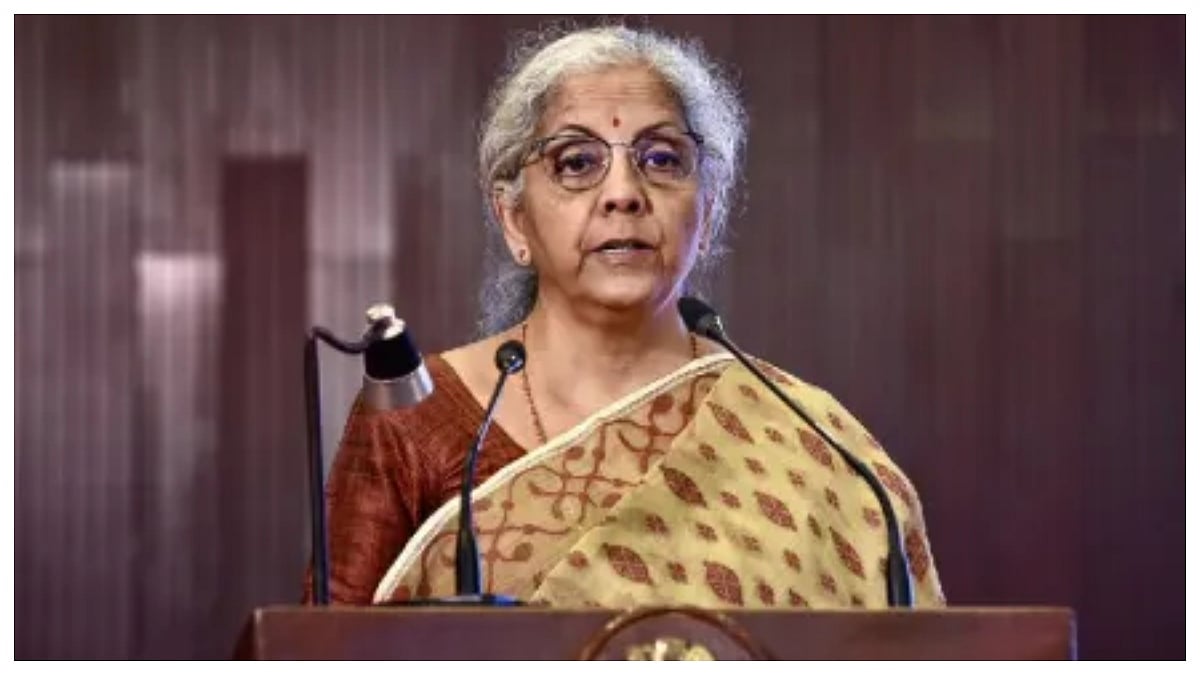GST Reform & Opposition States, Know - How Nirmala Sitharaman Managed A Smooth Consensus on GST 2.0?
Nirmala Sitharaman successfully convinced opposition-ruled states to support GST 2.0 reforms. Despite initial resistance, consensus was reached in one day, clearing the path for major tax changes from September 22.

Big GST Reform Approved, But How Did It Happen? |
New Delhi: You may already know that India has introduced a major reform in its Goods and Services Tax (GST) system, now being called GST 2.0. Under this new system, taxes on many items like luxury cars, air conditioners, shaving cream, and even ice cream have been reduced. These changes will take effect from September 22, 2025. But what’s even more interesting is how Finance Minister Nirmala Sitharaman managed to get approval for this plan—especially from opposition-ruled states like West Bengal, Kerala, Punjab, and Karnataka.
Two-Day Meeting, One-Day Decision
The GST Council meeting was held on September 3 and 4 at Delhi’s Vigyan Bhawan. Although it was planned for two days, the major decisions were made on the very first day itself. On the night of September 3, Sitharaman held a press conference at 10 PM and announced the big changes. Initially, many believed that convincing finance ministers from opposition-ruled states would be tough, especially from Bengal, Kerala, Punjab, and Karnataka.
It Wasn’t That Difficult
During the press conference, Sitharaman was asked whether it was tough to convince opposition parties. She replied that it wasn’t as hard as people had thought. According to her, the proposals were already well-prepared, and her team had done extensive research over the last six months. Multiple meetings had been held, and the council already knew what was working in the current GST system and what wasn’t.
The Main Concern: Revenue Loss
According to inside sources, the biggest concern among opposition states was the fear of losing revenue. Some states, especially West Bengal, raised objections during the meeting. Sitharaman responded by explaining that GST collections are shared between the Centre and the states. If states lose revenue, the Centre does too. She stressed that the reforms were aimed at benefiting the common people, and that all parties must work together to make it happen. She also promised that states’ interests would be protected.
ALSO READ
Bengal and Punjab Agreed Early, Karnataka and Kerala Held Out
Interestingly, Punjab and West Bengal agreed to the changes early in the meeting. In fact, Bengal’s Chief Minister Mamata Banerjee claimed credit for some of the reforms, saying she had been demanding them for eight years. However, Karnataka and Kerala were not convinced. They demanded clear assurance that any revenue loss would be compensated and wanted further discussion in the next meeting. Other states, tired of the delay, began to push for a vote.
Voting Was Considered, But Not Needed
In the GST Council, decisions are usually taken by consensus, but voting is allowed if needed. It has happened only once before. During this meeting, when Chhattisgarh's Finance Minister O.P. Chaudhary repeatedly asked for a vote, Sitharaman agreed. At that point, West Bengal stepped in again and helped convince Karnataka and Kerala. Finally, everyone agreed, and the reforms were approved.
RECENT STORIES
-
-
-
-
-